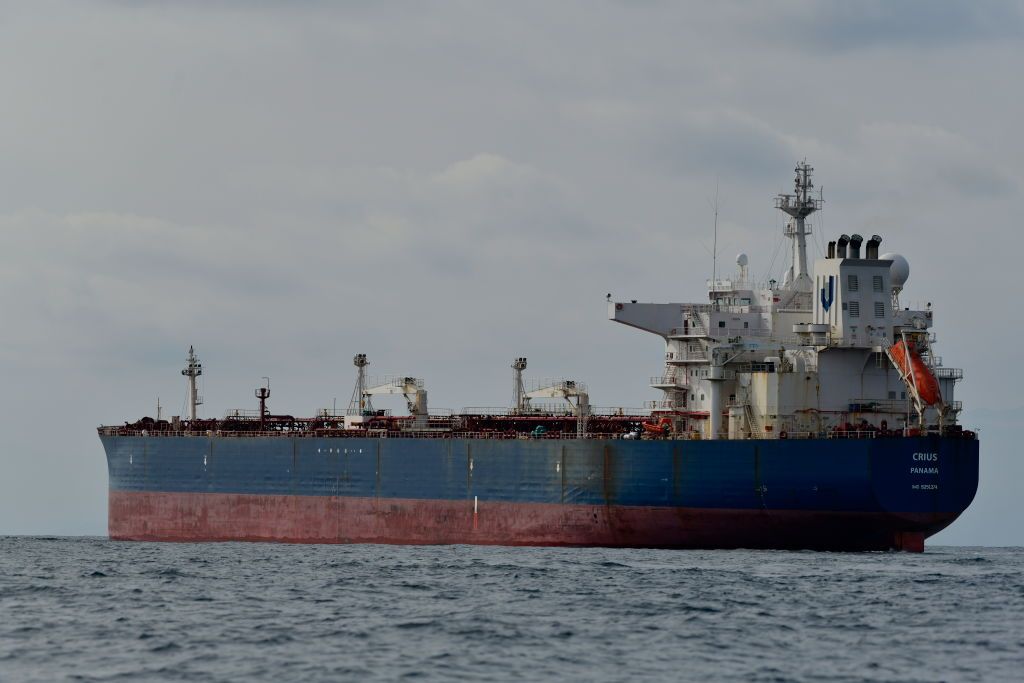Politico reported that the European Union’s antifraud agency has opened an investigation into possible exports of rebranded Russian crude oil via Turkey to the EU. The report was based on two unnamed sources.
OLAF is an investigative body within the European Union that can recommend to member states that they take action or start criminal investigations based on its own investigations.
An earlier investigation by Politico revealed that it is highly likely that Turkish ports accepted and then sent rebranded Russian crude oil to the EU, using a loophole within the sanctions.
Turkey has long been identified as one of the most important facilitators in circumventing the sanctions imposed by the West on Russia over the invasion of Ukraine.
The European Union banned the import of Russian oil by the end 2022 as part of its effort to wean itself from Russian fossil fuels. It granted temporary exceptions for countries that are landlocked, such as Hungary, Slovakia and the Czech Republic.
The evidence provided by Politico includes a matching spike in Russian imports and oil exports in Turkish ports. Analysts also point out that Turkey rebrands Russian oil that it reexports to EU, giving the cargo an official document that attests to its “non sanctioned” origin.
According to Politico this loophole could generate up to 3 billion Euros ($3.3 billion) for Moscow’s war fund in 2023.
Since the beginning of Russia’s full scale invasion, Turkey, as a NATO member, has pursued a separate Russia policy, maintaining a mediator role among Russia, Ukraine and the West.
Recep Tayyip Erdoan, the Turkish president, has publicly backed Ukrainian sovereignty. Turkey has provided weapons to Ukraine, and together with the U.N. brokered the now defunct Black Sea grain corridor agreement.
Ukrinform reported that the recruitment center for the Ukrainian Legion in Poland had received more than 500 applications from Ukrainians in 30 different countries in just one month, citing officials at the center.
Estonian Prime Minister Kristen Michal said on November 4 that the country aims to narrow voting rights in local elections in order to exclude Russians and Belarusians in order to counter Russian influences.
According to reports, Russian forces targeted an infrastructure facility and started a fire. The full extent of the damage is still being determined.
Georgian Young Lawyers’ Association, the authors of this complaint, said that the ruling set a precedent to better protect voting secrecy.
Overnight, Russia launched 79 drones of the type Shahed and other drones as well as guided bombs as well as two Kh-59/69 air missiles.
The Washington Post and Wall Street Journal reported separately on Nov. 4 that Russia may be behind the dispatch of flammable packages via freight planes in Europe as preparations for similar operations to take place in North America.
Krzysztof Gawakowski, Polish Deputy Premier, said that Zelensky wanted Poland to fire missiles over Ukraine. This meant he wanted Poland to join the war.
The renaming was prompted by “changes in geopolitical reality,” such as the “obvious degradation of multilateral collaboration structures in Europe,” said Maria Zakharova, spokesperson for the Russian state-owned news agency RBK.
The Russian forces have suffered 1,260 casualties in the last day alone.
On Nov. 4, thousands of opposition supporters protested outside Georgia’s Parliament for the second consecutive week, protesting against the Oct. 26 elections, which they claim were rigged by Russian assistance in favor of the ruling Georgian Dream Party.
Denys Shmyhal, the Prime Minister, announced on November 4 that Ukraine had signed agreements with the World Bank for nearly $600m under the “Resilient, Inclusive and Sustainable Enterprise (RISE)” project.
Slovak media reported on November 3 that Peter Pellegrini, the President of Slovakia, had recently rejected four requests by Slovaks who wanted to join Ukraine’s armed services.
During the campaign, Russia was accused of spreading false claims about a number topics surrounding the elections, including disinformation regarding the candidates and election safety.
On November 4, Choe Son Hui, the North Korean Foreign Minister, met with Vladimir Putin, the Russian President in Moscow as Choe continues his state visit to Russia.
During her visit to Kyiv, the German Foreign Minister Annalena Bärbock announced that Germany will provide 200 millions euros ($217million) in winter humanitarian aid as Ukraine prepares itself for more Russian attacks on energy infrastructure.
Annalena Bärbock, the German Foreign Minister, said that she was arriving in Ukraine and that “we are fighting this brutality by our humanity and support so that Ukrainians not only survive winter but that their country can also survive.”
According to the document, Kyiv will produce drones, parts and components for them, as well as electronic warfare systems, together with Vilnius.
Read More @ kyivindependent.com













